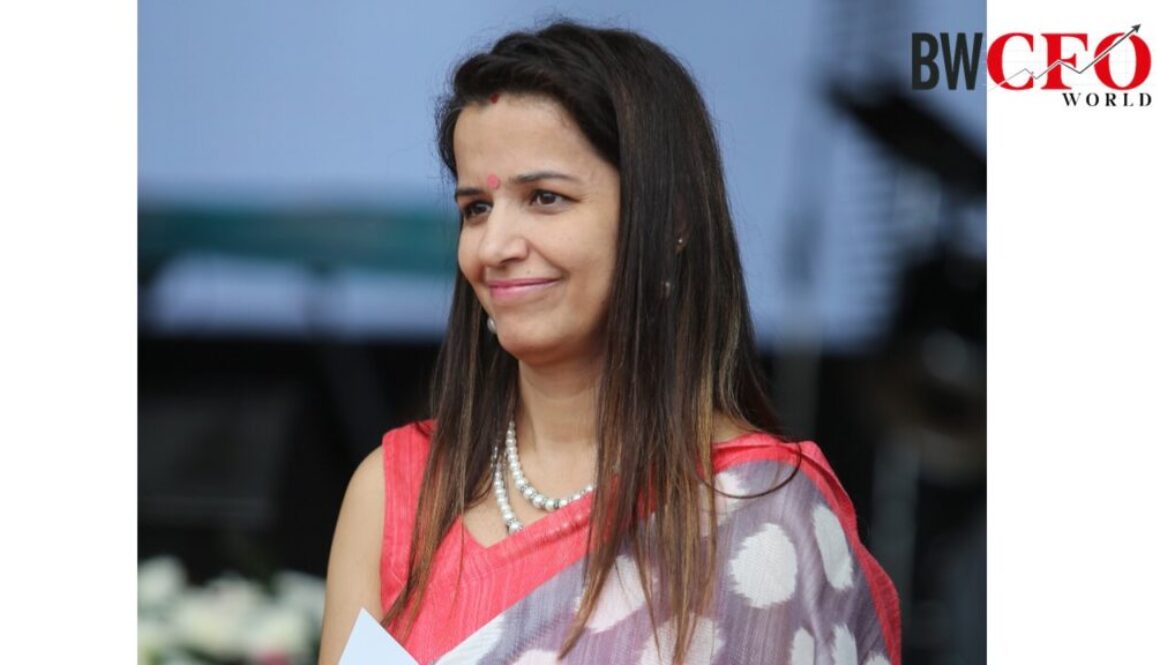CFOs Should Appreciate Human Sensitivities At Workplace And Balance Needs Of Disrupted Business
CFO and VP Admin of Suzuki Motorcycles, Sneha Oberoi talks about staying digitally ahead, taking your people along with the speed of change and the larger lesson from the pandemic for manufacturing CFOs.
Suzuki Motorcycles’ Sneha Oberoi shared her insights with BW CFO World’s Janani Janarthanan on the changing dynamics of the CFO operations. In her joint role as CFO and VP Admin, she relates her learnings from the year and a half gone by offering insights from the finance function and also the HR and IT, giving a unique fiscal, human and technology-first perspective. Emerging from the lessons learnt as a manufacturing sector CFO to the must-dos to stay a relevant CFO, she answers it all.
Read the edited excerpts below:
What changes have you observed in your role in the last 18 months?
The pandemic has changed various things like the way of working, coordination and collaboration with the stakeholders. It has become the time when you have to determine exactly where and how the crisis has stretched and broken your existing models — and where the risks and opportunities lie as a result.
The factors coming into the risk register changed dramatically and it has become very important to make the recovery plans in advance and you have to be sure that they are in line with the business requirements.
What are some changes specific to the Manufacturing Sector?
For a manufacturing company, the pandemic has given a different kind of challenge- on one side production can’t stop and on the other hand, other departments can’t come to the office 100%. This is the time when you can’t resist changes and the only thing you can do is to, is to keep yourself updated. Information flow should be intact with the risk management team and the key persons of the organisation who influence decision-making.
Close monitoring of the supply chain is another thing that is necessitated in such times to ensure that the domestic and international supply chain remains intact and as efficient as possible. The industry has become more innovative and started using digital efforts to reach out to consumers. Now we know that this change in buying habits will stay and online sales will also show an increase in coming years.
According to you, given the speed of change for the past few quarters, what should be the pillars of a sound financial strategy?
In today’s world leaders of every industry are strong enough to ride the tide, adapt and come out stronger. Now the finance leaders have tested few phases of pandemic and they already know how to maintain the balance sheet resilience.
What I feel can be the important points to be taken care of when you are planning to come through the crisis stronger is
- Realign your cost structure and sharpen your productivity
- Facilitate digital transformation to create a digital enterprise
- Carve our new revenue streams
- Prepare your workforce for the new world
- Strengthen your liquidity
When it comes to future investments, what are your immediate priorities?
Investments to support process compliance in a digital manner is something that we are looking at closely. Data Protection and Cyber Security is our first priority. As companies virtualize their workforce and create more external access points to their systems, they potentially become more vulnerable to cyber risks, including Data Theft, Ransomware, and other attacks. Vigilance and investment in cybersecurity will continue to increase its importance.
How has your digital transformation plans helped you maintain an edge over competition?
Supply chain and liquidity for the dealers was the biggest challenge for us so we have introduced the digital payment platform so that for transporter, vendors and suppliers complete invoice can be raised digitally and for dealers, payment can be made on time with minimum human intervention.
Even in the customer-facing processes, SMIPL was the first Two-Wheeler company to invest in and launch the Online Customer Sales and Service Engagement Program called `Suzuki at your Doorstep’ program. Over the next few months, many more manufacturers deployed similar initiatives in line with the need of the times.
Your comment on the steady EV trend at the moment and Suzuki’s plans for the same.
There are some developments in this area, but I am not in a position to comment on this question as of now.
What are the new list of skills for the ideal CFO according to you?
During the year of the pandemic, several processes have been reviewed, opportunities on the level of digitalization and RPA has been investigated and the use of the current working tools has been revalidated.
CFOs of the manufacturing industry have to play a vital role in recuperation, they have to identify the cost-cutting areas and reducing the overhead as a strategy. They have to support the sales by analyzing from the point of view of compliances for the new revenue models explored with the aim of increased customer engagement through digital channels.
CFOs will also be expected to make informed technology investment decisions to ensure the interconnectedness of all aspects of manufacturing operations and making strategic decisions.
To my mind, CFOs of today not only need to be masters of their domain, but they also need to be able to appreciate human sensitivities at the workplace and balance them out with the needs of a disrupted business situation. The need to take your people along is more important than ever before.
And finally, how do you expect the demand to change from its current low sentiment for the automotive sector?
We at Suzuki are cautious but quite optimistic in the medium to long term. I feel that the single biggest factor that can revive demand is increased coverage of the Indian Population under the Covid-19 Vaccination Program. The government’s keen intent and measures to hasten this process gives us confidence that consistent demand revival should be experienced soon.

